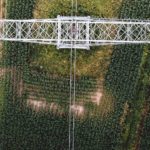Feed aggregator
EXCLUSIVE: Carbon credit originator says achieves 1-bln tonne project pipeline, targets 50 Mt in trade this year
Spanish wind giant commits to 4GW of new renewables a year, including in Asia Pacific
 Spain-based wind energy giant wants to invest billions in the development of gigawatts of new utility-scale solar and wind – including in Australia.
Spain-based wind energy giant wants to invest billions in the development of gigawatts of new utility-scale solar and wind – including in Australia.
The post Spanish wind giant commits to 4GW of new renewables a year, including in Asia Pacific appeared first on RenewEconomy.
The red and yellow sticker dilemma – how do we balance safety with the desire to return home after a disaster?
How slimmed-down websites can cut their carbon emissions
UK’s largest landowner launches market engagement survey on seabed CCUS
Queensland buys $5bn Copperstring project to unlock 6GW of “bulk renewables”
 Queensland Labor says it will build the $5bn transmission link that promises to unlock gigawatts of new renewables and power major industrial and mineral growth.
Queensland Labor says it will build the $5bn transmission link that promises to unlock gigawatts of new renewables and power major industrial and mineral growth.
The post Queensland buys $5bn Copperstring project to unlock 6GW of “bulk renewables” appeared first on RenewEconomy.
RGGI Market: RGA prices near 2-mth low despite programme review news, high auction prediction
British Columbia to implement output-based pricing system for large emitters in 2024
US firm secures conditional approval for environmental credits registry and exchange in the Bahamas
VCM Report: Liquidity perks up but prices generally drop lower
As Western Sydney residents grapple with climate change, they want political action
The Guardian view on the UK’s net zero targets: time to walk the walk | Editorial
The government is failing to make good on Britain’s net zero pledges to the world
Last summer, the Climate Change Committee (CCC) delivered a 600-page assessment of the United Kingdom’s journey towards net zero targets. The scathing conclusions could be summed up in a single sentence: Westminster continues to talk the talk, but a lack of follow-through means the country is failing to walk the walk.
In too many areas, the CCC found, goals were being undermined by failures in delivery programmes. There was a “shocking gap”, it reported, in policymaking to drive better insulation of homes. Progress on reducing farming emissions had been “glacial”. The bald conclusion was that the “current strategy will not deliver net zero” by 2050, as legally required.
Continue reading...Four Insulate Britain members convicted after London street blockade
Matthew Tulley, 44, Ben Taylor, 38, George Burrow, 68, and Anthony Hill, 72, were part of a blockade at Bishopsgate in 2021
Four climate activists who blockaded a street in London in a campaign to press the government to insulate homes have been found guilty of public nuisance.
A jury at Inner London crown court found the protesters, who are members of Insulate Britain, guilty on Monday after a four-day trial.
Continue reading...Attenborough's Wild Isles shows us our own 'spectacular' nature
Sir David Attenborough: Three must-see moments in new series
Technical Director, Climate Action Data Trust – Singapore
Meat, dairy and rice production will bust 1.5C climate target, shows study
Emissions from food system alone will drive the world past target, unless high-methane foods are tackled
Emissions from the food system alone will drive the world past 1.5C of global heating, unless high-methane foods are tackled.
Climate-heating emissions from food production, dominated by meat, dairy and rice, will by themselves break the key international target of 1.5C if left unchecked, a detailed study has shown.
Continue reading...Cote d’Ivoire teams up with developers to explore potential for large-scale reforestation
China's new human gene-editing rules worry experts
A sheep: the mascot of changing seasons | Helen Sullivan
Sheep are descended from a ‘mouflon’. Yes (yes!)
The wind is blowing: it is the wind that changes the seasons, hot to cold. It blows and blows until the season knows it is time to sit on its suitcase, overstuffed with things that happened, zip it up and travel to the other side of the world.
Sometimes, the season gets trapped for a week, like a little whirlwind of leaves, or one leaf on a small plant going round and round, or moving in a figure eight: an incantation. You get one last period of very cold or very hot. You are trapped, too, like a sheep in its wool: you are in the present, there is no going forward until the season is on its way.
In Things I Don’t Want to Know, Deborah Levy is carrying her luggage up a steep path on a mountain in Spain. “The smell of wood fired in the stone houses below and the bells on sheep grazing in the mountains and the strange silence that happens in between the bells chiming suddenly made me want to smoke.”
What was natural was hedgerows, hawthorn, skylarks, the chaffinch on the orchard bough. You had never seen these but believed in them with perfect faith [...] Literature had not simply made these things true. It had placed Australia in perpetual, flagrant violation of reality.
Continue reading...


